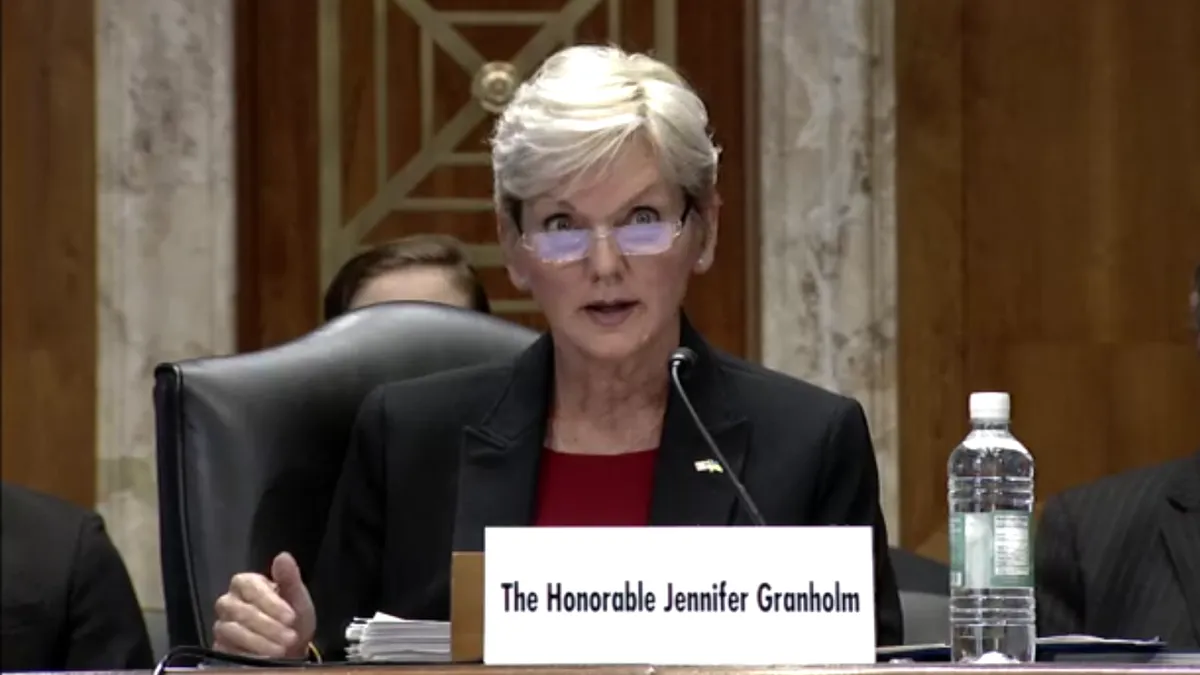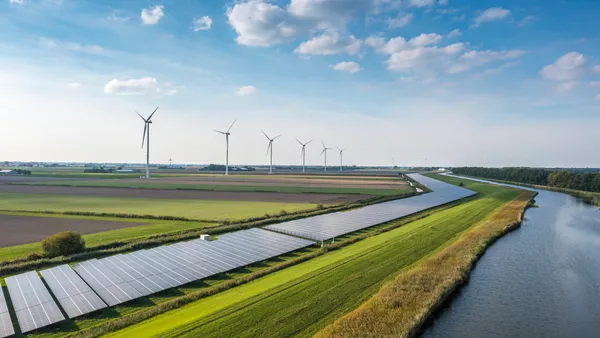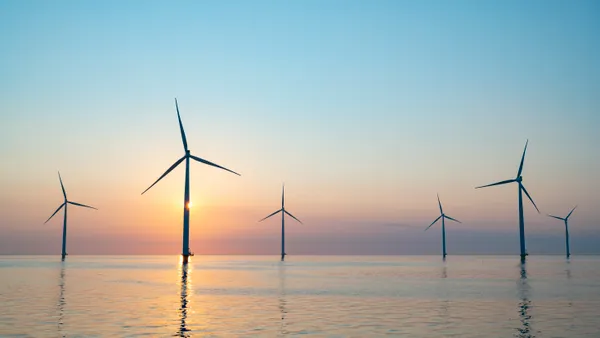Dive Brief:
- The Department of Commerce's investigation into potential solar tariff circumvention could threaten the United States' decarbonization efforts if it goes on for too long, Department of Energy Secretary Jennifer Granholm said Thursday.
- The investigation risks "the complete smothering of the investment and the jobs and the [energy] independence" the solar industry provides, she told the Senate Energy and Natural Resources Committee during a hearing on the Biden administration's proposed Fiscal Year 2023 budget request for DOE.
- Rising electricity prices were also a topic of discussion, with Republican lawmakers blaming Biden policies that discouraged development of pipeline infrastructure or gas drilling. Sen. Angus King, I-Maine, also pointed to rising liquefied natural gas exports as a factor in rising electricity prices.
Dive Insight:
The rising price of electricity, natural gas and gasoline were major issues at Thursday's hearing. While much of the questioning focused on Russia and Ukraine, there was also discussion of electricity issues like the solar tariff investigation and its potential impact on plans to decarbonize the U.S. electric sector by 2035.
Commerce announced the investigation in March, digging into claims that manufacturers in four Southeast Asian countries use parts made in China that otherwise would be subject to a tariff. The investigation could take up to a year, potentially upending the supply chain of panels from those countries in the meantime.
"I'm hearing from manufacturers, from installers, all about laying people off now, about projects being canceled," said Sen. Martin Heinrich, D-N.M. "It's not up to any of us to tell Commerce how to resolve that process. However, if it's not done really, really quickly we are going to destroy an entire industry."
The Department of Commerce is expected to issue a final decision as late as April 2023.
"I certainly am deeply concerned about being able to achieve the goal of getting 100% clean electricity by 2035 if this is not resolved quickly," Granholm said.
Sen. Mazie Hirono, D-Hawaii, asked what DOE can do to address short-term project issues and long-term supply chain problems.
"Solar projects are coming to a screeching halt as a result of the potential outcome," Hirono said. "So I hope that your department can figure out how you can be of help right now."
"It does beg the question about building out the full supply chain for solar inside the United States, so we don't have to worry about the import issue," Granholm responded. She pointed to advanced manufacturing tools provided through the bipartisan infrastructure act to accelerate solar, including a $200 million budget request for "a solar accelerator" program to advance domestic manufacturing. She also mentioned the Solar Energy Manufacturing for America Act, which includes a new tax credit to incentivize solar.
Senators asked Granholm what the Biden administration can do to combat the rising cost of energy and whether policies are discouraging investment in oil and gas production. Granholm responded that the federal government approved more permits last year to drill than it did in the first three years of the Trump administration.
But Sen. Bill Cassidy, R-La., pointed the finger at the Federal Energy Regulatory Commission's new policies on gas pipeline permitting, proposed Securities and Exchange Commission rules on emissions disclosure, and the Department of Labor's proposed rule to allow greater consideration of environmental, social, and governance issues in retirement fund and pension management. Investors see those decisions and decline to invest in oil and gas projects, he said.
"If you look at the reality, the context of this administration's attitude towards fossil, you've killed financing," Cassidy said.
Granholm said liquefied natural gas export projects are proof the Biden administration is not opposed to fossil fuels. "We have permitted every LNG terminal that has been requested of us," she said, noting that the U.S. is the world's largest exporter.
However, Sen. King pointed to the increase in LNG exports as a cause for rising electricity prices.
The U.S. exports about 15% of its gas production today, he said, but approved applications would push that north of 50%. Some of that may be necessary in the short term to help Europe deal with energy shortages related to the war in Ukraine, he noted.
"The problem is we're building 35-year assets," King said to Granholm. "I hope that you will take a closer look at these applications because the standard is supposed to be the public interest. I believe domestic natural gas prices are part of the public interest."















